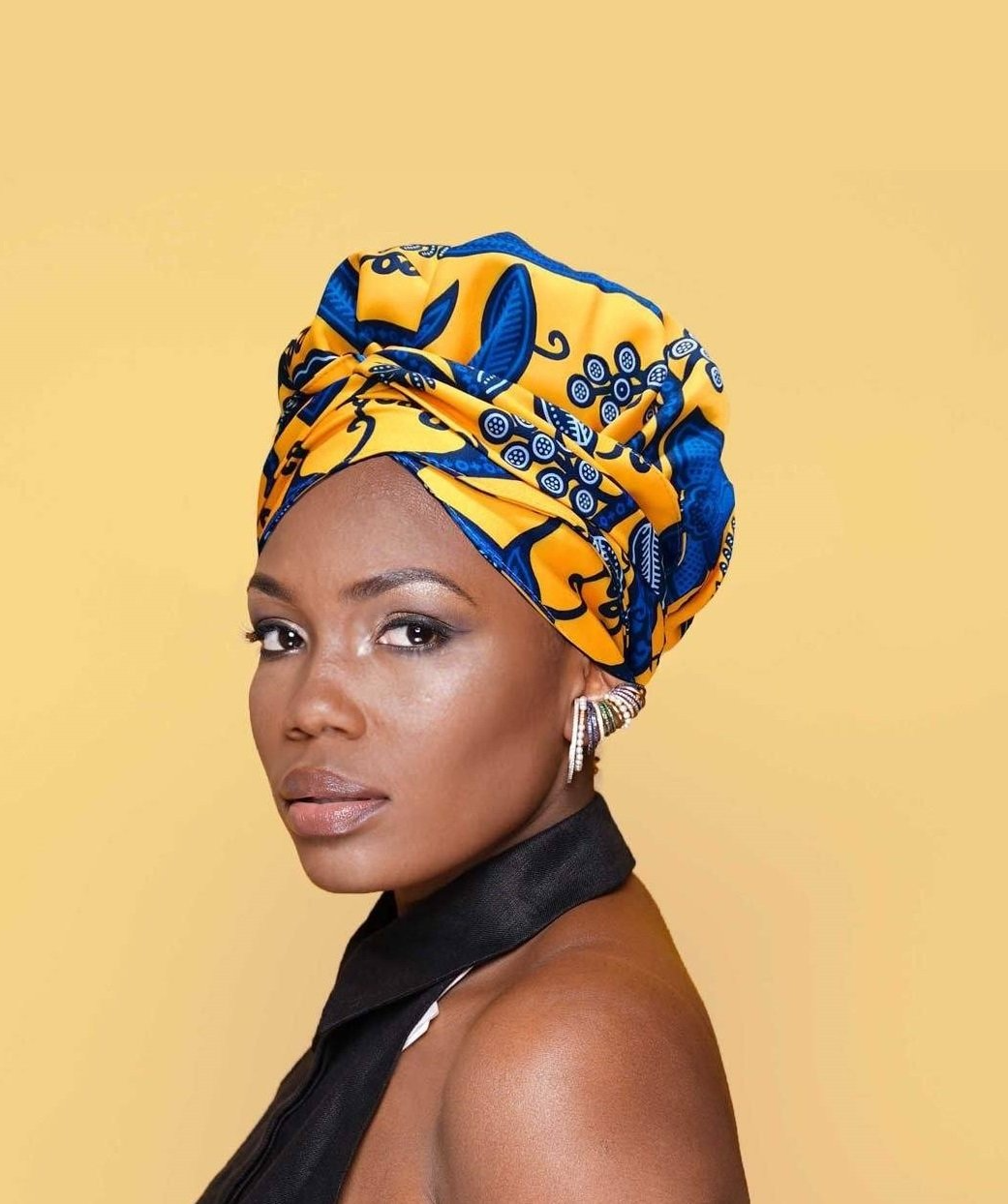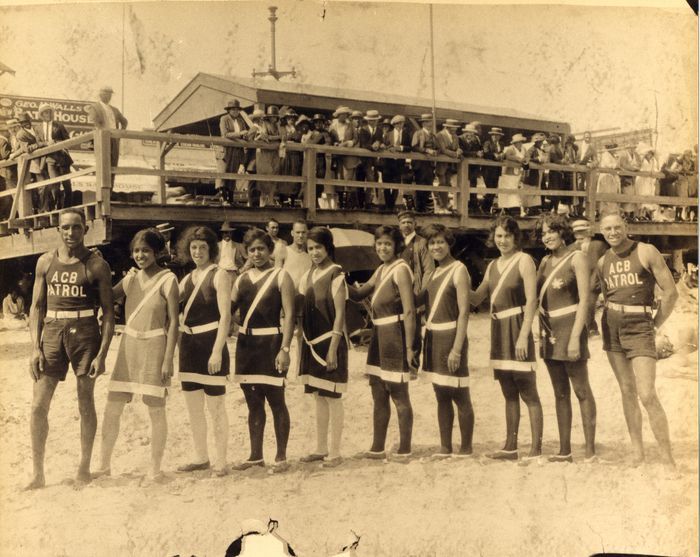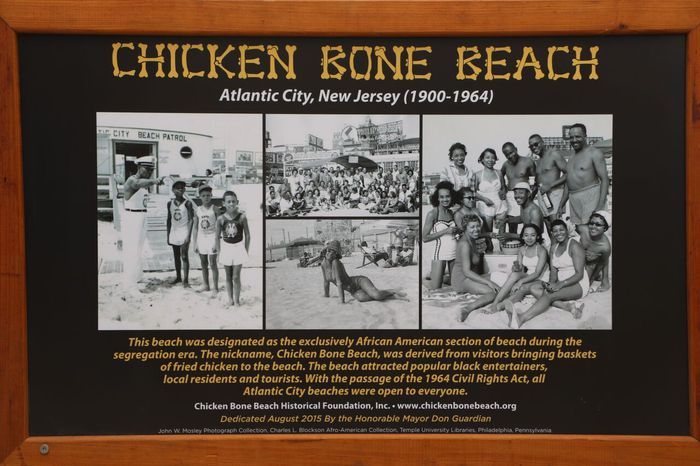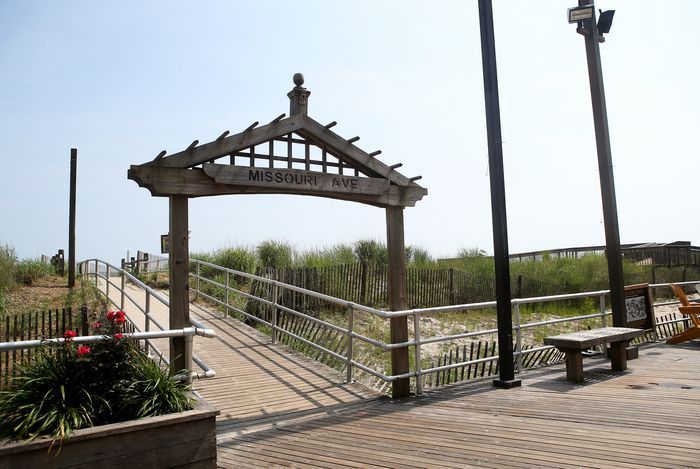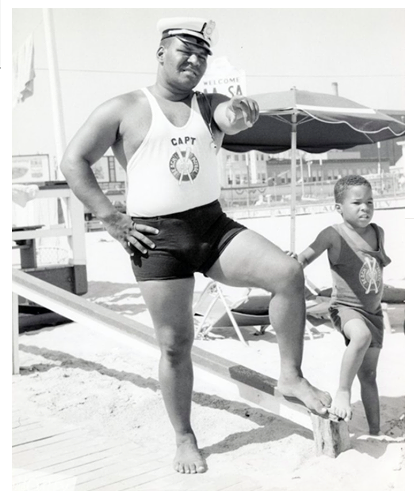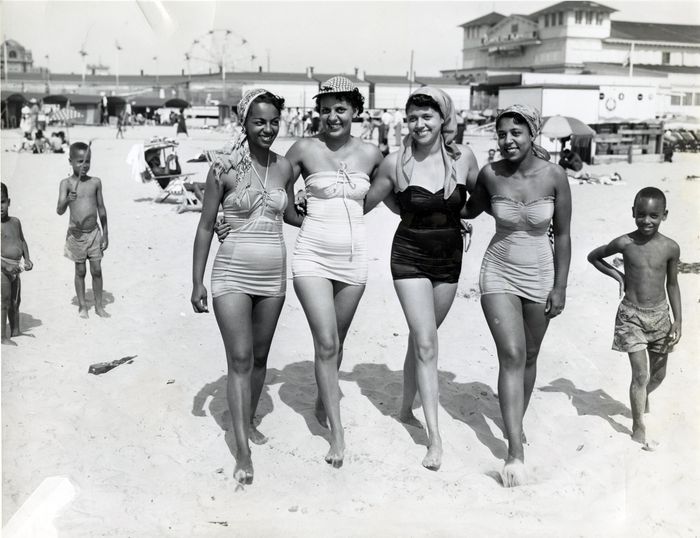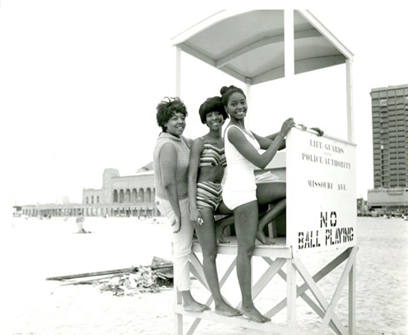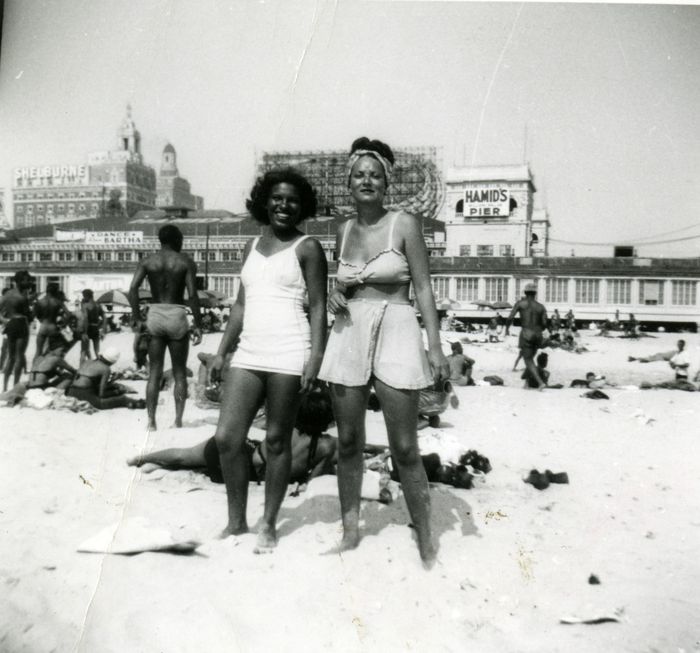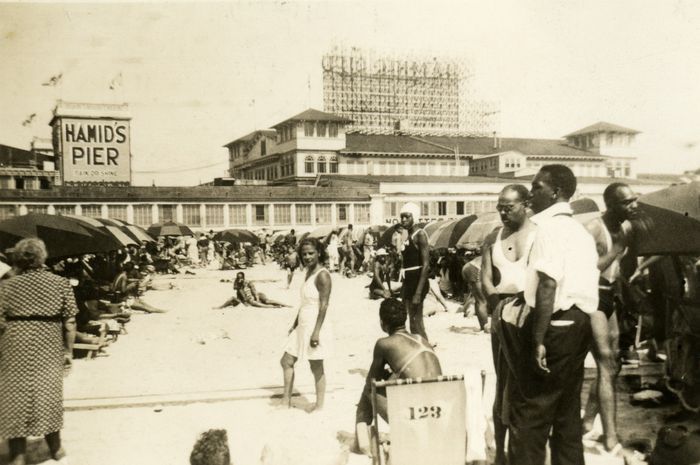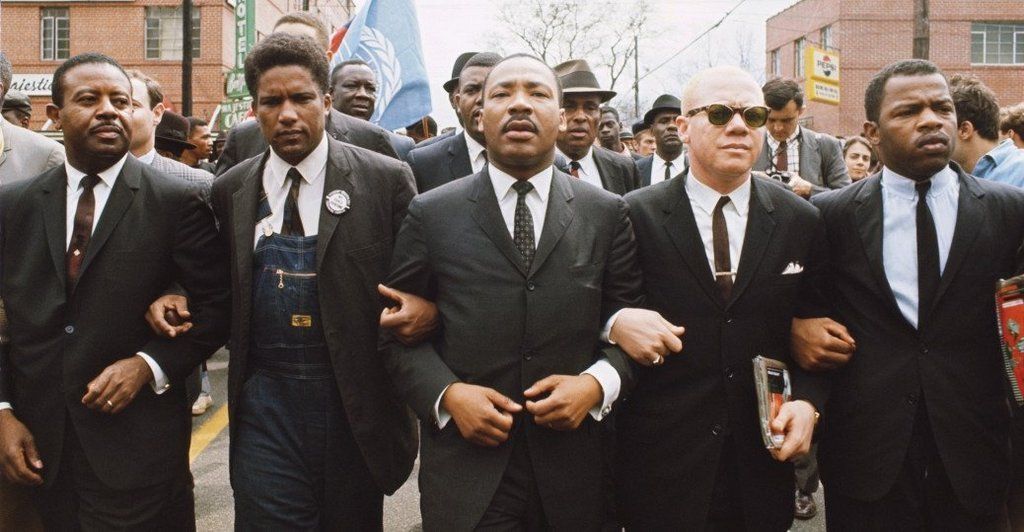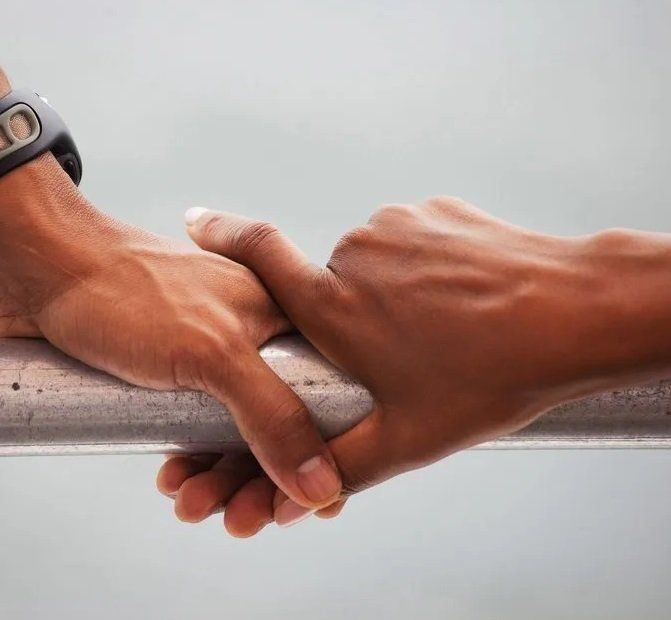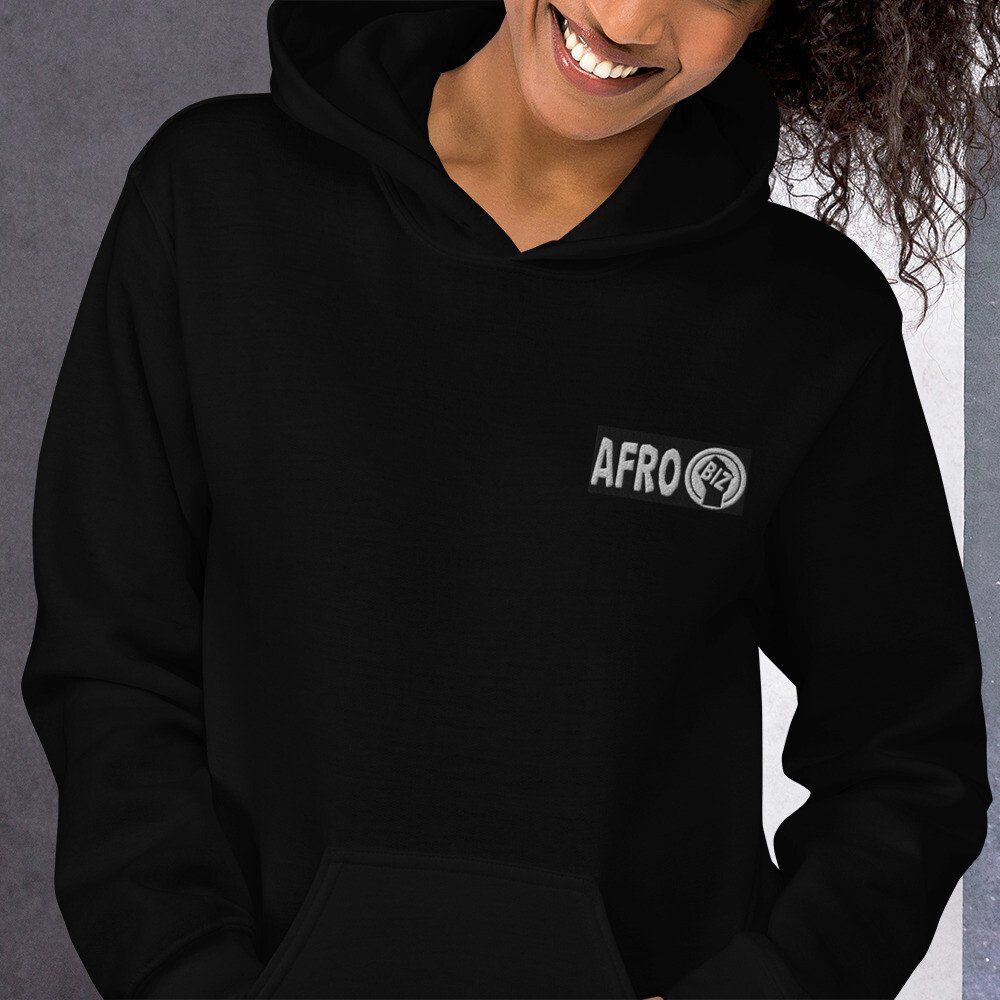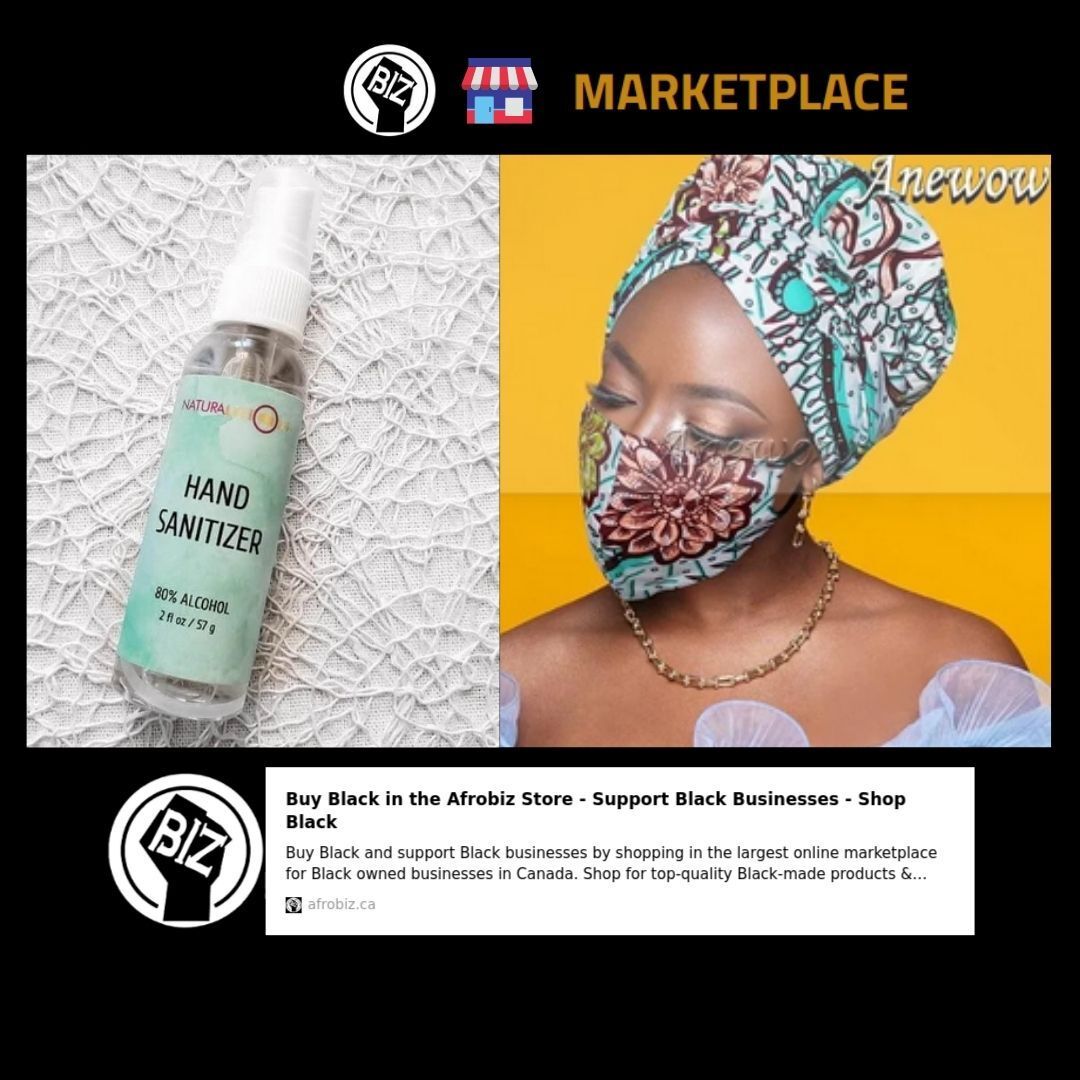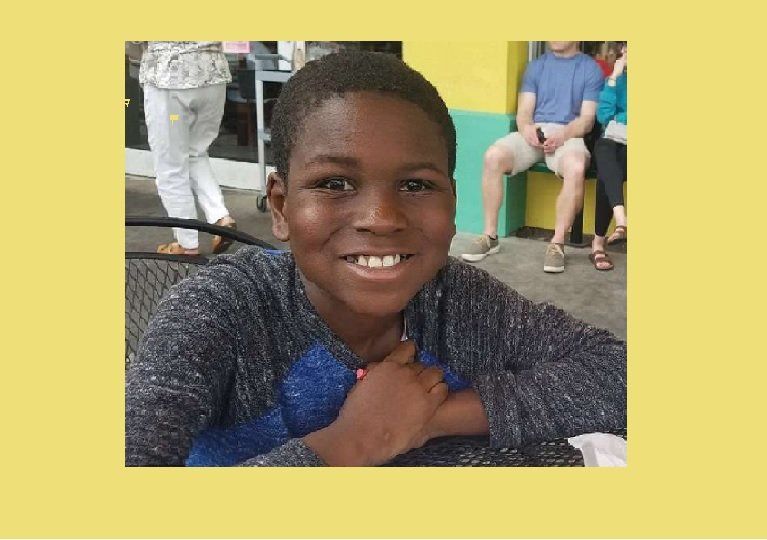Chicken Bone Beach
New Jersey beach was the only one that allowed black tourists, but they made it a hip place to be.
This article is part of “Unknown New Jersey,” an ongoing series that highlights interesting and little-known stories about our past, present, and future -- all the unusual things that make our great state what is it.
The 16-year-old son of a Philadelphia minister had never been to an ocean resort area lined with businesses willing to serve black people and lodge them in hotels and guesthouses.
“I had never seen anything like it,” he said of Atlantic City and its prosperous African-American neighborhoods and business districts and the oceanfront paradise of Chicken Bone Beach. “I got off the bus and saw tens of thousands of people who looked like me.”
Ralph Hunter said he “went buck wild” in the late 1950s when he first laid eyes on what is now known as Chicken Bone Beach.
Hunter, now 81, eventually retired in the Jersey Shore resort town and started the African American Heritage Museum of Southern New Jersey to house up to 12,000 artifacts he collected and other memorabilia to tell the story of the booming black community and how it found a place of its own on the beach in Atlantic City.
But it wasn’t always like that.
In 1928, hotel owners in Atlantic City told city officials they had a problem.
White patrons had begun to complain about black people on the beach and in the ocean in front of their hotels.
“The matter of colored bathers was taken up,” an executive from the Ambassador Hotel wrote a public official according to historical archives at the Atlantic City Free Public Library. “The Georgia Avenue side of the Convention Hall would be a logical place for colored bath houses.”
Never mind that blacks and whites had shared the beach for nearly 80 years since the resort city was founded when railroads finally reached the shore from the north and west. Hotels overflowing with revelers still able to quench thirsts for alcohol in prohibition America kept the good times rolling. And what the new crowds wanted they eventually received.
Jim Crow racial segregation laws were never officially enacted in Atlantic City but local leaders sought “diplomatic measures,” according to a 1931 letter to an official in San Diego, California who had reached out for advice.
“The leading members of our community conferred with leaders of the negro race and advised them it was for the best interest of everyone concerned that the negroes patronize the beach at which the colored lifeguards were placed,” the letter said. “…[T]he word seemed to spread among them…the thing for them to do would be to patronize the aforesaid beach…No strong-arm methods were used…and the matter was amicably adjusted by the use of diplomatic methods.”
It was determined that the north side of town, a place already inhabited by thousands of African-Americans who worked in hotels and other Atlantic City businesses, would be the area for blacks to “patronize” the shore town. An area stretching north from Missouri Avenue, oceanfront property owned by the city and near the Convention Hall, would be the area where “colored” lifeguards would be stationed. Hotels, restaurants and bars quickly sprung up to serve black people and an entertainment district revolving around Club Harlem drew top African-American entertainers, including Sammy Davis Jr., Louis Armstrong, Count Basie, Duke Ellington, showgirls and other stars.
Regular folks could rub elbows with stars on the beach during the day and stick around for show-stopping performances at night.
But the majority of the patrons of Chicken Bone Beach were families on day trips who packed hearty lunches and snacks for the day. Fried chicken was a favorite meal, Hunter and other historians said.
Eventually, the beach black vacationers most patronized was dubbed Chicken Bone Beach.
Stories have swirled over the years why the name stuck. One story says revelers often buried their chicken bones in the sand after they ate.
Hunter, and others who are still alive and remember how highly what they called Missouri Avenue Beach was regarded, said the name was a racial epithet.
“Every beach in town is named for the street that leads to it,” Hunter said. “The towns of Ventnor and Longport had large Jewish populations. Do you think they would stand for naming a beach they go to for a type of food they eat? Hell no.”
Heniretta Shelton, 75, agrees with Hunter. She moved to Atlantic City from Florida when she was 10 in the mid-1950s. She said people took pride in their beach and were offended when it came to be known as Chicken Bone Beach.
But Shelton said she eventually made peace with the name and decided to help promote it as a positive symbol of a thriving black community that “made lemonade out of lemons.”
Shelton started the Chicken Bone Beach Historical Foundation in the 1990s.
She said it was “formed and titled in homage to the historical segregation of African-Americans on Atlantic City’s world-famous beaches… [t]urning the memory of an unfortunate chapter of American history into a positive force of good.”
Shelton’s foundation sponsors a series of summer jazz concerts on Chicken Bone Beach and year-round enrichment programs for youths.
On a typical summer day here now, blue, rental beach umbrellas dot the sand in the shoreline leading to the Atlantic Ocean. A wooden proscenium arch leads the way to the beach, which is sandwiched between the Playgound Pier mall and Jim Whelan Boardwalk Hall.
Few landmarks of the era of black prosperity remain. But just a few feet to the right of the beach entrance, a wooden-framed plaque provides a peephole to the past.
“This beach was designated the exclusively African American section of the beach in the segregation era,” a narrative on the sign says. “The beach attracted popular black entertainers, local residents and tourist...With the passage of the 1964 Civil Rights Act, all Atlantic City beaches were open to everyone.”
SOURCE: http://ow.ly/SA8N30pGCDD

